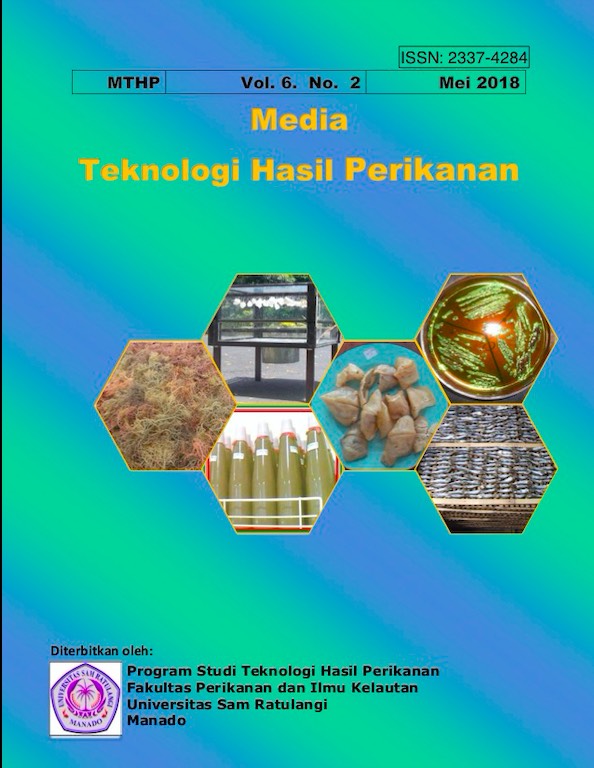ANALISA MIKROBIOLOGI DAN ORGANOLEPTIK PRODUK TENGGIRI BEKU(Scomberomorus commersonii)
DOI:
https://doi.org/10.35800/mthp.6.2.2018.19967Keywords:
Microbiological, organoleptic, frozen mackerel (Scomberomorus commersonii)Abstract
Mackerel fish is sea fishs species which are pelagic marine fish groupwhich has a distinctive taste so favored by the people. frozen mackerel is a fishs that is easily damaged. Thus the fishs need to be handling it well. Fishskeep the temperature will affect the quality of the fishs. during storage in the storage and distribution processing. can affect product quality. To decrease the quality of frozen mackerel fishs products need to note the changes that occur either through physical, chemical and biological. It explains research to analyze the quality of fishs products frozen mackerel observe  aspects of Microbiology testing and Appearance. Based on the results of microbiological and organoleptic frozen mackerel fish, it can be conclude that test for microbiological test total plate count (TPC) is below the standard value in accordance with ISO 4110, 2014. for Uju E, coli is negative, Salmonella Test is Begatif, Vibrio Colera test is also negative and Appearance Test Values above 7 quality fish so the test results of Microbiology and poduct organoleptic frozen mackerel safe for consumption as the above test result.
Downloads
Published
How to Cite
Issue
Section
License
Authors who publish with this journal agree to the following terms:
- Authors retain copyright and grant the journal right of first publication with the work simultaneously licensed under a Creative Commons Attribution License that allows others to share the work with an acknowledgement of the work's authorship and initial publication in this journal.
- Authors are able to enter into separate, additional contractual arrangements for the non-exclusive distribution of the journal's published version of the work (e.g., post it to an institutional repository or publish it in a book), with an acknowledgement of its initial publication in this journal.
- Authors are permitted and encouraged to post their work online (e.g., in institutional repositories or on their website) prior to and during the submission process, as it can lead to productive exchanges, as well as earlier and greater citation of published work (See The Effect of Open Access).






